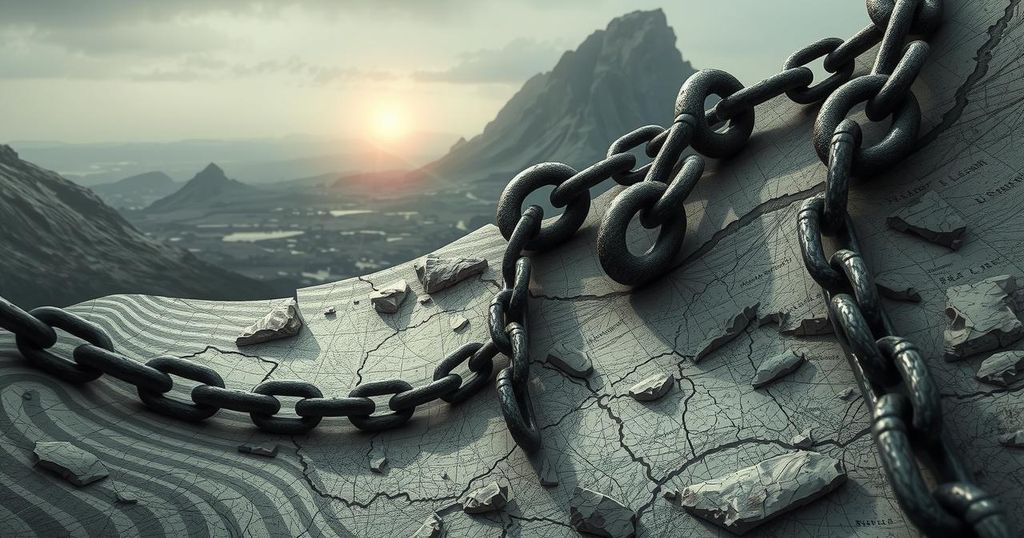Escalation of Conflict in the Democratic Republic of Congo: Key Developments and Background
The M23 rebels have captured Goma in the DRC, leading to large-scale civilian displacement and severed ties between Congo and Rwanda. The conflict has resulted in the deaths of 17 peacekeepers, further escalating tensions in the region. The M23 group’s origins trace back to previous peace agreements, with renewed aggressiveness raising alarms over humanitarian access and regional stability.
The Democratic Republic of Congo (DRC) is experiencing intensified clashes as M23 rebels have seized Goma, a significant city in the eastern region. This has caused a mass exodus of civilians seeking refuge in Rwanda, where the DRC accuses the government of aiding the rebels. The conflict has resulted in the deaths of at least 17 peacekeepers and foreign personnel while displacing over 400,000 individuals since January. Diplomatic relations between Congo and Rwanda have been severed amid rising tensions and allegations of foreign support for the rebel faction.
Recent developments highlight the ongoing conflict in North Kivu province, where M23’s renewed aggression has been marked by successful offensives against Congolese forces and government-aligned militias. This escalation has prompted demonstrations in Kinshasa, targeting foreign embassies accused of backing the insurgents. The violence has disrupted humanitarian efforts and left many regions inaccessible to aid, further worsening the situation for those displaced.
The origins of the M23 rebels date back to a 2009 peace agreement with the DRC government, which was intended to integrate former rebel fighters into the national army. However, in 2012, a faction split, citing government failures to uphold the terms of the deal, leading to the formation of M23. After a period of dormancy, the group has revived its operations in recent years, pursuing its demands with increasing force in the eastern DRC.
The DRC has been plagued by insecurity for almost 30 years, with over 100 armed groups vying for control of resource-rich areas. The conflict has displaced millions, particularly in the provinces of North Kivu and Ituri. M23 emerged from the CNDP faction and quickly became known for its military effectiveness, capturing Goma in 2012. Despite previous peace agreements, the group reactivated its campaign in 2021, exacerbating tensions with Rwanda, which the DRC accuses of support, a claim Rwanda denies. The current violence significantly impacts civilians, disrupting essential services, and requires immediate international attention. The UN peacekeeping mission is strained, and non-essential personnel are being relocated as a precaution due to increased hostilities. The international community’s response is critical to containing the conflict and addressing the humanitarian needs of those affected.
The escalating conflict in the DRC, particularly in the eastern region, underscores the urgent need for diplomatic intervention and humanitarian assistance. The M23 rebels’ resurgence has led to substantial civilian displacement and loss of life among peacekeeping forces. As regional tensions rise, fostering dialogue and addressing the root causes of the violence are essential for stabilizing the situation and supporting the affected populations.
Original Source: www.aa.com.tr




Post Comment